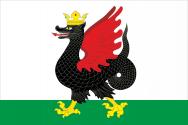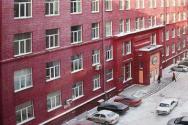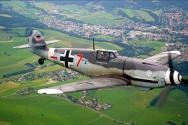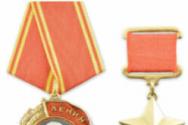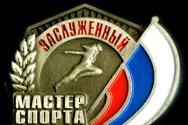Who is the prototype of Grisha Dobroslonov? The image of Grisha Dobrosklonov in the poem “Who Lives Well in Rus'” (School Essays)
Grisha Dobrosklonov is a key figure in Nekrasov’s poem “Who Lives Well in Rus'.” Let me tell you a little about him. Grisha was born into the family of a poor clerk, a lazy and untalented man. The mother was a type of the same female image, drawn by the author in the chapter “Peasant Woman”. Grisha determined his place in life at the age of 15. It’s not surprising, because a hungry childhood, hard work, given by his father; strong character, broad soul, inherited from the mother; a sense of collectivism, resilience, incredible perseverance, brought up in the family and the seminary, ultimately resulted in a feeling of deep patriotism, moreover, responsibility for the fate of an entire people! I hope I clearly explained the origins of Grisha’s character?
Now let's look at the real-biographical factor of Grisha's appearance. You may already know that the prototype was Dobrolyubov. Like him, Grisha, a fighter for all the humiliated and insulted, stood for peasant interests. He did not feel the desire to satisfy prestigious needs (if anyone remembers lectures on social science), i.e. His primary concern is not about personal well-being.
Now we know something about Dobrosklonov. Let's reveal some of it personal qualities, in order to find out the degree of significance of Grisha as a key figure. To do this, we simply need to select from the above words the words that characterize it. Here they are: the ability to compassion, strong convictions, an iron will, unpretentiousness, high efficiency, education, a magnificent mind. Here we, unbeknownst to ourselves, have come to the meaning of the image of Grisha Dobrosklonov. Look: these qualities are quite enough to reflect the dominant idea of the poem. Hence the conclusion is as prosaic as it is laconic: Grisha reflects one of the main ideas of the poem. This is the idea: living in Rus' is good only for such fighters for the happiness of the oppressed people. Explaining why I’m unlikely to succeed is a philosophical question and requires knowledge of psychology. Still, I’ll try to give an example: when you save someone’s life, you get the feeling that you are strong and kind, a servant to the king, a father to the soldiers,...right? And here you save a whole people...
But these are only consequences, and we still have to find out where it began. Let's think about it, we know that from childhood Grisha lived among unhappy, helpless, despised people. What brought him to such a height, what forced him to sacrifice himself for the sake of the common people, because, frankly, limitless opportunities opened up for a literate and educated, talented young man. By the way, this feeling, quality or sensation, call it what you want, fueled Nekrasov’s creativity, and it was from his suggestion that the main idea poems, patriotism and a sense of responsibility take their origins from him. This is the capacity for compassion. A quality that Nekrasov himself possessed and endowed with it on the key figure of his poem. It is quite natural that this is followed by the patriotism inherent in a person from the people, and a sense of responsibility to the people.
It is very important to determine the era in which the hero appeared. Epoch – uplifts social movement, a people of many millions is rising to fight. Look:
“...An innumerable army is rising -
the strength in her is indestructible..."
The text directly proves that people's happiness is possible only as a result of a nationwide struggle against the oppressors. The main hope of the revolutionary democrats, to whom Nekrasov belonged, was the peasant revolution. And who starts revolutions? - revolutionaries, fighters for the people. For Nekrasov it was Grisha Dobrosklonov. From here follows the second idea of the poem, or rather, it has already flowed; we just have to isolate it from the general flow of thoughts. The people, as a result of the direction of the reforms of Alexander II, remain unhappy and oppressed, but (!) the forces for protest are ripening. The reforms prompted his desire for better life. Did you notice the words:
"…Enough! Finished with past settlement,
The payment has been completed, sir!
The Russian people are gathering strength
And learns to be a citizen!..."
The form of transmission was songs performed by Grisha. The words precisely reflected the feelings with which the hero is endowed. We can say that the songs were the crown of the poem because they reflected everything that I was talking about. And in general, they inspire hope that the Motherland will not perish, despite the suffering and troubles that overwhelmed it, and the comprehensive revival of Russia, and most importantly, the changes in the consciousness of the ordinary Russian people.
Grisha Dobrosklonov is fundamentally different from others characters poems. If the life of the peasant woman Matryona Timofeevna, Yakim Nagogo, Savely, Ermil Girin and many others is shown in submission to fate and prevailing circumstances, then Grisha has a completely different attitude to life. The poem shows Grisha's childhood and tells about his father and mother. His life was more than hard, his father was lazy and poor:
Poorer than seedy
The last peasant
Tryphon lived.
Two closets:
One with a smoking stove,
Another fathom is summer,
And all this is short-lived;
No cow, no horse,
There was a dog Itchy,
There was a cat - and they left.
This was Grisha’s father; he cared least of all about what his wife and children ate.
The sexton boasted about his children,
And what do they eat -
And I forgot to think.
He himself was always hungry,
Everything was spent on searching,
Where to drink, where to eat.
Grisha's mother died early, she was destroyed by constant sorrows and worries about her daily bread. The poem contains a song that tells about the fate of this poor woman. The song cannot leave any reader indifferent, because it is evidence of enormous, inescapable human grief. The lyrics of the song are very simple, they tell how a child suffering from hunger asks his mother for a piece of bread and salt. But salt is too expensive for poor people to buy it. And the mother, in order to feed her son, waters a piece of bread with her tears. Grisha remembered this song from childhood. She made him remember his unfortunate mother, grieve over her fate.
And soon in the boy's heart
With love to the poor mother
Love for all the wahlacina
Merged - and about fifteen years
Grigory knew for sure
What will live for happiness
A wretched and dark Good Corner.
Gregory does not agree to submit to fate and lead the same sad and wretched life that is typical of most people around him. Grisha chooses a different path for himself and becomes a people's intercessor. He is not afraid that his life will not be easy.
Fate had in store for him
The path is glorious, the name is loud
People's Defender,
Consumption and Siberia.
Since childhood, Grisha lived among wretched, unhappy, despised and helpless people. He absorbed all the people's troubles with his mother's milk, so he does not want and cannot live for the sake of his selfish interests. He is very smart and has a strong character. And it leads him onto a new path, does not allow him to remain indifferent to the people’s disasters. Gregory's reflections on the fate of the people testify to the liveliest compassion that makes Grisha choose such a difficult path for himself. In the soul of Grisha Dobrosklonov, confidence is gradually maturing that his homeland will not perish, despite all the suffering and sorrows that befell it:
In moments of despondency, O Motherland!
My thoughts fly forward.
You are still destined to suffer a lot,
But you won't die, I know.
Gregory’s reflections, which “poured out in song,” reveal him to be very literate and educated person. He is well aware of the political problems of Russia, and the fate of the common people is inseparable from these problems and difficulties. Historically, Russia “was a deeply unhappy country, depressed, slavishly lawless.” The shameful seal of serfdom turned the common people into powerless creatures, and all the problems caused by this cannot be discounted. Consequences Tatar-Mongol yoke also had a significant impact on the formation national character. The Russian man combines slavish submission to fate, and this is the main cause of all his troubles.
The image of Grigory Dobrosklonov is closely connected with revolutionary democratic ideas that began to appear in society in the middle of the 19th century. Nekrasov created his hero, focusing on the fate of N.A. Dobrolyubov. Grigory Dobrosklonov is a type of commoner revolutionary. He was born into the family of a poor sexton, and from childhood he felt all the disasters characteristic of the life of the common people. Grigory received an education, and besides, being an intelligent and enthusiastic person, he cannot remain indifferent to the current situation in the country. Grigory understands perfectly well that for Russia there is now only one way out - radical changes in the social system. The common people can no longer be the same dumb community of slaves that meekly tolerates all the antics of their masters:
Enough! Finished with past settlement,
The settlement with the master has been completed!
The Russian people are gathering strength
And learns to be a citizen.
The image of Grigory Dobrosklonov in Nekrasov’s poem “Who Lives Well in Rus'” inspires hope in the moral and political revival of Rus', in changes in the consciousness of the ordinary Russian people.
The ending of the poem shows that people's happiness is possible. And even if it is still far from the moment when an ordinary person can call himself happy. But time will pass- and everything will change. And not the least role in this will be played by Grigory Dobrosklonov and his ideas.
One of the controversial issues for non-krasologists is the role Grigory Dobrosklonov and the meaning of this image in the poem “Who Lives Well in Rus'”: Did Nekrasov create the image of a “people's defender”, a fighter for people's happiness, a “commoner, a revolutionary of the 60s. and revolutionary populist of the 70s,” or educator, educator of the people. In the draft version of the chapter, as the researchers note, it was “clearer true meaning image of Grisha Dobrosklonov - people's defender. It was here that Nekrasov compared him with Lomonosov and predicted a difficult fate for him: “consumption and Siberia.” “Consumption” and “Siberia” were, of course, accurate indications of the revolutionary, anti-government activities of Grisha Dobrosklonov. But Nekrasov, even at the initial (pre-censorship) stage of his work, crossed out the lines: “Fate had prepared for him / A loud path, a glorious name / for the people’s intercessor, / Consumption and Siberia.” Only at the will of the publishers of the poem, already in Soviet times, these lines were included in the text. But the question of why the author abandoned these lines, which directly indicate the revolutionary activity of the hero, remains. Did Nekrasov do this as a result of autocensorship, i.e. knowing in advance that lines will not be skipped? Or was this caused by a change in the concept of Grisha's image?
A possible explanation for Nekrasov’s refusal to indicate tragic fate Grisha Dobrosklonov was found by N.N. Skatov, who saw the reason in the desire to create a generalized image of a representative younger generation. “On the one hand,” writes the researcher, “he (Grisha Dobrosklonov) is a person of a very specific way of life and way of life: the son of a poor sexton, a seminarian, a simple and kind guy who loves the village, the peasant, the people, who wishes him happiness and is ready to fight for it. But Grisha is also a more generalized image of youth, looking forward, hoping and believing. It is all in the future, hence some of its uncertainty, only a tentativeness. That’s why Nekrasov, obviously not only for censorship reasons, crossed out the poems already at the first stage of his work.”
The place of the hero in the story is also controversial. K.I. Chukovsky was inclined to assign a key role to this hero. Actually, the appearance of such a hero as Grisha Dobrosklonov became the most important argument for the researcher in determining the composition of the poem. The “happiness” of the people’s intercessor Grisha Dobrosklonov should be crowned, in the opinion of K.I. Chukovsky, a poem, and not an enthusiastic hymn to the “benefactor” governor, which sounds in “The Peasant Woman”. The image of Grisha Dobrosklonov and other researchers perceive the image of Grisha Dobrosklonov as the final one in Nekrasov’s thoughts about “happiness”. According to L.A. Evstigneeva, “in the following chapters, the central figure of the poem was to become Grisha Dobrosklonov, whose image was only outlined in “The Feast...”.”
But there is another point of view, according to which Grisha Dobrosklonov is not the culmination of the poem, not its crown, but just one of the episodes in the search for peasants. “The meeting with Grigory Dobrosklonov,” the researchers believe, “was one of the episodes of the wanderers’ journey - important, significant, fundamental, etc., but still only an episode that did not at all mean the end of their search.” The same position is shared by V.V. Zhdanov, author of the book “The Life of Nekrasov”: “It is unlikely that all the paths of a polysyllabic narrative, all the diversity of images and characters can be reduced to Grisha Dobrosklonov,” he asserts, “it is likely that this is one of the stages on the way to the completion of the entire work.” The same idea is expressed by N.N. Skatov: “The image of Grisha itself is not the answer to either the question of happiness or the question of a lucky person.” The researcher motivates his words by the fact that “the happiness of one person (whoever it is and whatever is meant by it, even the struggle for universal happiness) does not yet resolve the issue, since the poem leads to thoughts about the “embodiment of the people’s happiness” , about the happiness of everyone, about “a feast for the whole world.”
There is every reason for such an understanding of the hero’s role: the men’s journey, indeed, should not have ended with Vakhlachin. And at the same time, it is difficult to agree with the fact that Grisha Dobrosklonov is just one of many heroes. It is no coincidence that in the image of Grisha Dobrosklonov the features of people so dear to Nekrasov’s heart are clear - Dobrolyubov and Chernyshevsky.
But the problem lies not only in determining the hero’s place in the poem. The question of whether Nekrasov accepted the “happiness” of Grigory Dobrosklonov as the highest idea of happiness seems controversial? Addressing this problem, K.I. Chukovsky claims that in his work Nekrasov correlated the life of only rich and influential people with the idea of happiness, for example, the “owner of luxurious chambers” from the poem “Reflections at the Main Entrance” was called happy. But this statement is not entirely accurate. Nekrasov had a different understanding of happiness. And it was also expressed in his lyrics. For example, he called I.S. lucky. Turgeneva:
Lucky! available to the world
You knew how to take pleasures
Everything that makes our destiny wonderful:
God gave you freedom, lyra
And a woman's loving soul
Blessed your earthly path.
The undoubted component of “happiness” for Nekrasov was not idleness, but work. And therefore, painting pictures of a happy future in the poem “The Grief of Old Naum,” Nekrasov glorifies “eternal vigorous labor on the eternal river.” This kind of Nekrasov confession is also known. In May 1876, the village teacher Malozemova wrote him a letter - a response to the poem he had read, which ended with the chapter “Peasant Woman”. It seemed to the teacher that the poet did not believe “in the existence happy people“, and she tried to dissuade him: “I am already old and very ugly,” she wrote, “but very happy. I sit by the window at school, admire nature and enjoy the consciousness of my happiness... There is a lot of grief in my past, but I consider it a blessing-happiness, it taught me to live, and without it I would not know pleasure in life...” Nekrasov answered her much later - his letter was dated April 2, 1877: “The happiness you are talking about would be the subject of a continuation of my poem. It's not destined to end." Do these words mean that in the future the author wanted to continue the story about the life of Grisha Dobrosklonov? It is impossible to answer this question. But one cannot help but notice that Grishino’s understanding of happiness is really close to the happiness of a rural teacher. So, when grateful to Grisha for good words, for his help, Vlas wishes him happiness, as he understands it, peasant happiness:
May God give you silver too,
And gold, give me a smart one,
Healthy wife! -
Grisha Dobrosklonov disagrees with this understanding of happiness and contrasts it with his own:
I don't need any silver
Not gold, but God willing,
So that my fellow countrymen
And every peasant
Life was free and fun
All over holy Rus'!
Researchers have long noted the closeness of the fate and image of Grisha Dobrosklonov with the destinies and personalities of Nikolai Chernyshevsky and Nikolai Dobrolyubov. The seminary past, the origin of Chernyshevsky, Dobrolyubov’s personality traits and even his last name become the direct sources of the image. It is also known how Nekrasov perceived his collaborators in Sovremennik: in the poems dedicated to Dobrolyubov and Chernyshevsky, their destinies are affirmed as the embodiment of an ideal destiny. But we can note a number of other details that indicate the special significance for the author of the image of Grisha Dobrosklonov. Nekrasov clearly sacralizes the image of Grisha: presenting Grisha as a “messenger of God,” marked with the “seal of God’s gift.” The angel of mercy calls on the path he chooses, the “narrow”, “honest” road. The song “In the Middle of the Below World,” sung by the angel of mercy, in the draft version was called “Where to go?” Researchers see in this title a clear analogy with the title of Chernyshevsky’s novel “What is to be done?” But we can also assume another source for these words: they echo the words of the Apostle Peter, who, as the ancient apocrypha testifies, asked Christ about the purpose of his journey: “Where are you going?” Answering Peter's question, Christ said: "To Rome to be crucified again." “After this, Christ ascends to heaven, and Peter, seeing in the words of Christ a proclamation of his martyrdom, returns to Rome, where he is crucified upside down.” This analogy also allows us to see the highest meaning of Grisha’s path. It is interesting to note that the original name of Nekrasov’s hero was Peter.
But it is no coincidence that the author refuses this direct analogy with the fate of a follower of Christ, just as he refuses direct references to the revolutionary activity of Grisha Dobrosklonov. Grisha appears as an educator, “a sower of knowledge in the people’s field,” who is called upon to “sow the rational, the good, the eternal.” It is characteristic that the poem calling “sowers of knowledge to the people’s field” was written simultaneously with the chapter “A Feast for the Whole World.” But if in the poem “To the Sowers” Nekrasov complained about the “timidity” and “weakness” of the sowers, then in the poem he creates the image of a hero endowed with determination, moral strength, and understanding people's soul. Born into the people's environment, having experienced all their sorrows and sorrows, he knows both the people's soul and the path to the people's heart. He knows that he can “revive” Rus'. Life given to the revival of the people's soul, the enlightenment of the people, is thought of by Nekrasov as happiness. That is why Nekrasov ends his poem with the words:
If only our wanderers could be under their own roof,
If only they could know what was happening to Grisha.
He heard the immense strength in his chest,
The sounds of grace delighted his ears,
The radiant sounds of the noble hymn -
He sang the embodiment of people's happiness!..
We should agree with V.I. Melnik, who writes that the poet sang “every human sacrifice, every feat - as long as it was done in the name of other people. Such self-sacrifice became, as it were, Nekrasov’s religion.”
Endowing his hero with a truly “happy” fate, Nekrasov nevertheless does not end the chapter with the return of wanderers to their native villages. Their journey was to continue. Why? After all, the final lines indicated not only the author’s agreement with this understanding of happiness, but also the fact that the wanderers were already ready to share it. One of the possible answers to this question was given by G.V. Plekhanov, famous revolutionary figure. He saw the reason for this ending in the fact that the people and the “people's defenders” were not united in their aspirations. “The fact of the matter is that the wandering peasants of different villages, who decided not to return home until they decided who would live happily and freely in Rus', did not know what was happening to Grisha, and could not know. The aspirations of our radical intelligentsia remained unknown and incomprehensible to the people. Its best representatives, without hesitation, sacrificed themselves for his liberation, but he remained deaf to their calls and was sometimes ready to stone them, seeing in their plans only new machinations of his hereditary enemy - the nobility.”
This remark, reflecting the actual realities of Russian life, is still not entirely fair in relation to Nekrasov's poem: Grisha does not appear as a lone fighter in the poem, the “Vahlaks” both listen to him and listen to his opinion. And yet Nekrasov did not want to complete the quest for his heroes in Vakhlachin. The journey must continue, and, as one of the researchers rightly writes, “it is unknown where it can lead the men. After all, the poem is built on the basis of the development of the author’s idea, and it is very important for Nekrasov to show what the wanderers learn during the journey, what, in particular, they learned from those new encounters described in “The Feast...”. Therefore, the events depicted in “The Feast ...” should not at all be the end of the poem; on the contrary, they became a new incentive in the further search for the seven men, the further growth of their self-awareness.”
I
Poorer than seedyThe last peasant
Tryphon lived. Two closets:
One with a smoking stove,
Another fathom is summer,
And all this is short-lived;
No cow, no horse,
There was a dog Itchy,
There was a cat - and they left.
Having put the parent to sleep,
I picked up Savvushka’s book.
But Grisha couldn’t sit still.
He went into the fields, into the meadows.
Grisha has a wide bone,
But very emaciated
Face - underfed them
Grabber-economist.
Gregory in the seminary
At one o'clock in the morning he wakes up
And then until the sun
He’s not sleeping, he’s eagerly waiting for the rushnik,
which was given to them
With sbiten in the morning.
No matter how poor the Vakhlacina is,
They gorged themselves on it.
Thanks to Vlas the godfather
And to other men!
The guys paid them.
To the best of my ability, by work,
Trouble in their affairs
We celebrated in the city.
The sexton boasted about his children.
And what do they eat?
And I forgot to think.
He himself was always hungry
Everything was spent on searching.
Where to drink, where to eat.
And he was of an easy-going nature,
If it were otherwise, it would hardly
And he lived to see his gray hairs.
His owner Domnushka
She was much more caring
But also durability
God didn't give it to her. Deceased
All my life I thought about salt:
No bread - anyone
He will ask for salt
You need to give me clean money,
And there are them all over the Vakhlachina,
Driven to corvée.
There wasn’t a penny for a year!
Vakhlak pulled "Hungry"
And without salt - seasoned
I chewed bread with bark.
And that’s a good thing: with Domna
Shared it; babies
They would have decayed in the ground long ago
Her own children
Don't be a Vakhlat hand
Generous than God sent.
Unresponsive farmhand
For everyone who has anything
Helped her on a rainy day
All my life I thought about salt,
Domnushka sang about salt -
Did you wash it, did you mow it,
Did you lull Grishenka to sleep?
Beloved son.
How the boy's heart sank,
When the peasant women remembered
And they sang a song to Domnin
(He nicknamed her “Salty”
Resourceful vahlak).
Salty
No one like God!
Doesn't eat, doesn't drink
Little son
Look - he dies!
Gave me a piece
Gave another -
Doesn't eat, screams:
“Sprinkle some salt!”
But there is no salt,
At least a pinch!
“Sprinkle with flour,”
The Lord whispered.
Bite once or twice
He curled his mouth.
“More salt!” —
My son is screaming.
Again flour...
And for a piece
Tears like a river!
Ate son!
The mother boasted -
Saved my son...
Know, salty
There was a tear!..
And with a prayerful voice
Quietly in the seminary,
Where it was dark, cold,
Gloomy, stern, hungry,
Sang and grieved for mother
And about all the vakhlachina,
To his nurse.
And soon in the boy's heart
With love to the poor mother
Love for all the wahlacina
Merged - and about fifteen years
Gregory already knew for sure
Who will he give his whole life to?
And for whom he will die.
Pretty demon of rage
He flew with a punishing sword
Over Russian land.
Enough slavery is hard
Some paths are evil
Open, inviting
Kept in Rus'!
Above Russia coming to life
The holy song is heard:
That is the angel of mercy,
flying invisibly
Above her, strong souls
Calls for an honest path.
In the middle of the world below
For a free heart
There are two ways.
Weigh your proud strength.
Weigh your strong will:
Which way to go?
One spacious -
The road is rough,
The passions of a slave,
It's huge,
Greedy for temptation
There's a crowd coming.
About sincere life,
About the lofty goal
The idea there is funny.
It boils there forever.
Inhuman
Feud-war
For mortal blessings...
There are souls captive there
Full of sin.
Looks shiny
Life there is deadening
Good is deaf.
The other one is tight
The road is honest
They walk along it
Only strong souls
Loving,
To fight, to work
For the bypassed.
For the oppressed -
Multiply their circle
Go to the downtrodden
Go to the offended -
And be their friend!
No wonder the song of call
She sings - the pure ones listen to her, -
Rus' has already sent a lot
His sons, marked
The seal of God's gift.
On honest paths
I mourned a lot of them
(Alas! Falling star
They're rushing by!).
No matter how dark the vahlachina is.
No matter how crammed with corvée
And slavery - and she,
Having been blessed, I placed
In Grigory Dobrosklonov
Such a messenger...
Fate had it in store for him.
II
Grigory walked thoughtfullyFirst on the big road
(Antique: with high
curly birch trees,
Straight as an arrow).
It was fun for him
That's sad. Horny
Vakhlatsky feast,
Thought worked strongly in him
And poured out in song:
In moments of despondency, O Motherland!
My thoughts fly forward.
You are still destined to suffer a lot.
But you won't die, I know.
The darkness above you was thicker than ignorance,
More suffocating than a restless sleep,
You were a deeply unhappy country,
Depressed, slavishly unjudgmental.
How long have your people served as toys?
The master's shameful passions?
The descendant of the Tatars brought out like a horse
To the Slav slave market,
And the Russian maiden was dragged to shame,
The scourge raged without fear,
And the horror of the people at the word “recruitment”
Was it similar to the horror of execution?
Enough! Finished with past settlement,
The settlement with the master has been completed!
The Russian people are gathering strength
And learns to be a citizen.
And fate lightened your burden,
Companion of the days of the Slav!
You are also a slave in the family,
But the mother of an already free son!..
Grisha was lured by the narrow one,
winding path,
running through the bread,
Mown into a wide meadow
He went down it.
Drying grass in the meadow
The peasant women met Grisha
His favorite song.
The young man felt deeply sad
For the suffering mother,
And even more anger took over,
He went into the forest. Haunting,
In the forest, like quails
In the rye, the little ones wandered
Guys (and older ones
They turned over the senzo).
He is with them a body of saffron milk caps
I dialed it. The sun is already burning;
He went to the river. Bathing -
Charred city
The picture in front of him:
Not a house left standing,
One prison saved
Recently whitewashed
Like a white cow
Standing in the pasture.
The authorities hid there,
And the inhabitants under the shore,
Like an army, they set up camp.
Everyone is still sleeping, not many
Woke up: two clerks,
Holding the shelves
Robes, making their way
Between cabinets, chairs,
Units, crews
To the tavern tent.
That's where the tailor is crouched
Arshin, iron and scissors
Carries - like a leaf trembles.
Rising from sleep with prayer,
Combing his head
And keeps you flying away,
Like a girl, a long braid
Tall and dignified
Archpriest Stefan.
Slowly along the sleepy Volga
The rafts with firewood are pulling along.
They stand under the right bank
Three barges loaded:
Yesterday barge haulers with songs
They were brought here.
And here he is - exhausted
Burlak! with a festive gait
Goes, the shirt is clean,
Copper rings in my pocket.
Grigory walked and looked
For a satisfied barge hauler,
And the words fell from my lips
Sometimes in a whisper, sometimes loudly.
Gregory thought out loud:
Burlak
Shoulders, chest and back
He pulled the barge with a tow line,
The midday heat scorched him,
And sweat poured from him in streams.
And he fell and got up again,
Wheezing, “Dubinushka” moaned;
He reached the place where the barge was located
And fell asleep in a heroic sleep,
And, in the bathhouse, washing off the sweat in the morning,
Walks carelessly towards the pier.
Three rubles sewn into the belt.
The rest - copper - stirring,
I thought for a moment and went into a tavern.
And silently threw it on the workbench
Hard-earned pennies
And, having drunk, he grunted from the bottom of his heart,
He crossed his chest at the church.
It's time to go! it's time to go!
He walked briskly, chewed kalach,
He brought his wife red as a gift.
A scarf for my sister, and for the children
Horses in gold leaf.
He walked home - a long way,
May God let you get there and rest!
No schools where they wouldn't argue
About a Russian man.)
He remembered everything at once,
What I saw, what I heard.
Living with the people, myself.
What I thought, what I read,
Everything - even the teachers,
Father Apollinaris,
Recent words:
“From ancient times, Rus' was saved
By popular impulses."
(People with Ilya Muromets
Compared by the scientist pop.)
And for a long time Grisha was on the shore
Wandered around, worrying, thinking,
You are also abundant
You are mighty
You are also powerless
Mother Rus'!
Saved in slavery
Free heart -
Gold, gold
People's heart!
People's power
Mighty force -
Conscience is calm,
The truth is alive!
Strength with untruth
Doesn't get along
Sacrifice by untruth
Not called -
Rus' does not move,
Rus' is like dead!
And she caught fire
Hidden spark -
They stood up - unwounded,
They came out - uninvited,
Live by the grain
The mountains have been destroyed!
The army is rising -
Countless!
The strength in her will affect
Indestructible!
You're miserable too
You are also abundant
The great truth in her spoke passionately!
I’ll teach the Vakhlachkovs to sing it, but they won’t
Sing your “Hungry”... Help them, oh God!
As if playing and running, my cheeks flare up,
This is how a good song lifts your spirits
Poor, downtrodden...” After reading solemnly
A new song for my brother (brother said: “Divine!”),
Grisha tried to sleep. I fell asleep, I didn’t sleep,
More beautiful than before, a song was composed in half sleep;
If only our wanderers could be under their own roof,
If only they could know what was happening to Grisha.
He heard the immense strength in his chest,
The sounds of grace delighted his ears,
The radiant sounds of the noble hymn -
He sang the embodiment of people's happiness!..
This work has entered the public domain. The work was written by an author who died more than seventy years ago, and was published during his lifetime or posthumously, but more than seventy years have also passed since publication. It may be freely used by anyone without anyone's consent or permission and without payment of royalties.
Dobrosklonov Grisha
WHO LIVES WELL IN RUSSIA
Poem (1863-1877, unfinished)
Dobrosklonov Grisha is a character who appears in the chapter “A Feast for the Whole World”; the epilogue of the poem is entirely dedicated to him. “Gregory / Has a thin, pale face / And thin, curly hair / With a tinge of redness.” He is a seminarian, the son of the parish sexton Trifon from the village of Bolshie Vakhlaki. Their family lives in extreme poverty, only the generosity of Vlas the godfather and other men helped put Grisha and his brother Savva on their feet. Their mother Domna, “an unrequited farmhand / For everyone who helped her in any way / on a rainy day,” died early, leaving a terrible “Salty” song as a reminder of herself. In D.’s mind, her image is inseparable from the image of her homeland: “In the boy’s heart / With love for his poor mother / Love for all the Vakhlachina / Merged.” Already at the age of fifteen he was determined to devote his life to the people. “I don’t need silver, / Nor gold, but God grant, / So that my fellow countrymen / And every peasant / May live freely and cheerfully / Throughout all holy Rus'!” He is going to Moscow to study, while he and his brother help the peasants as best they can: they write letters for them, explain the “Regulations on peasants emerging from serfdom,” work and rest “with the peasantry on an equal basis.” Observations on the life of the surrounding poor, reflections on the fate of Russia and its people are clothed in poetic form, D.'s songs are known and loved by the peasants. With his appearance in the poem, the lyrical principle intensifies, the author’s direct assessment invades the narrative. D. is marked with the “seal of the gift of God”; a revolutionary propagandist from among the people, he should, according to Nekrasov, serve as an example for the progressive intelligentsia. In his mouth, the author puts his beliefs, his own version of the answer to the social and moral questions posed in the poem. The image of the hero gives the poem compositional completeness. The real prototype could be N.A. Dobrolyubov.
All characteristics in alphabetical order:
- - - - - - - - - - - - - - -

